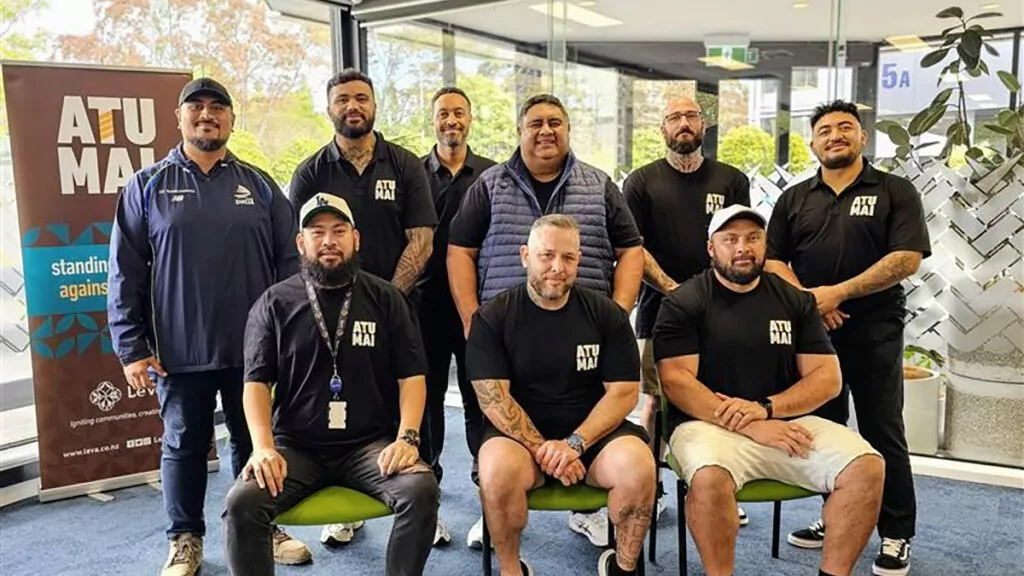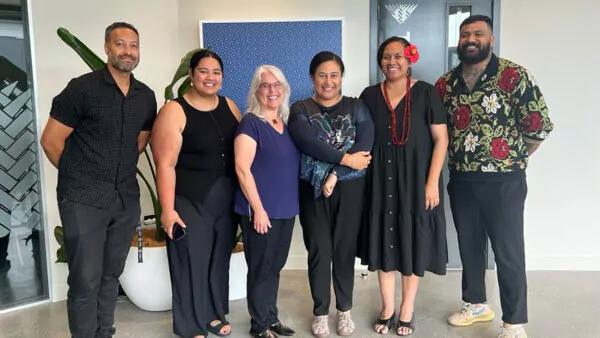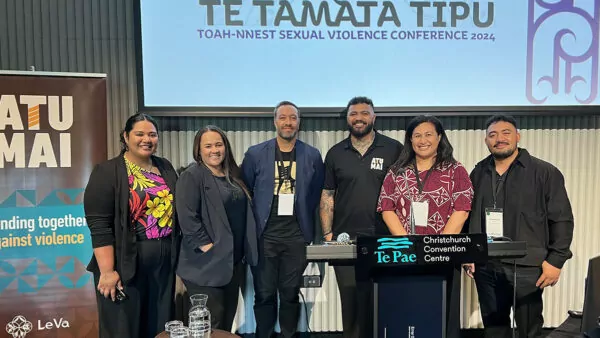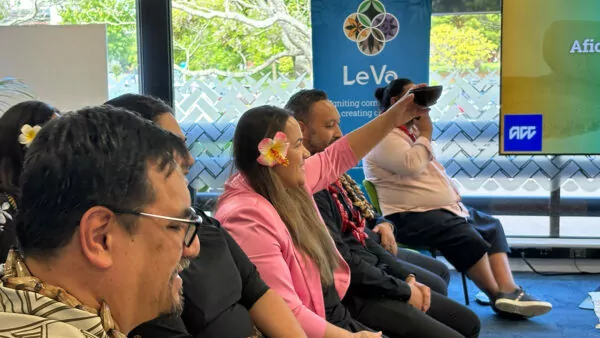Atu-Mai: progressing the violence prevention journey

This month, Le Va’s Atu-Mai violence prevention team led four days of intense and rewarding training and workshop sessions to share knowledge about the causes of sexual harm in our communities and how we can work together collectively to prevent it.
“We’ve been moving through different stages of Le Va’s own community mobilisation framework. It has been powerful work, getting to know who is on the vaka with us and building the tools skills and knowledge to prevent sexual violence in our communities,” says senior manager Paul Tupou-Vea.
“We’re fortunate to be joined by so many capable and enthusiastic community leaders as Upstanders who will mobilise prevention initiatives in their communities”, Paul says of the 12 Atu-Mai Upstanders.
One of our Upstanders keen to make a difference is Fale Pasifika Women’s Refuge Sharee Sauni-Kennach, who says learning about the cultural aspects and cultural considerations during the training has been a huge help.
“It is hard for us to open up especially around sexual violence,” she says. “If we can prevent things from happening now, we are creating a safe space for others to grow up in.”
Each of our training sessions sparked some profound and poignant talanoa among the attendees about the realities of sexual violence and child sexual abuse out in the community and learning about the things we can do and say to help prevent it.
One participant highlighted ‘the power of language noting you can break or make trust based on the language you use,’ while another spoke about ‘learning to sit with discomfort.’
Josh Macfarlane of Man Alive attended the men’s group training and noted that there’s no other sexual violence primary prevention training out there, that carefully considers culture as well as best practise.

Atu-Mai men’s group
One of our Tongan female participants asked, ‘what does equality really look like in a Pasifika context?’ and “can we address sexual violence without addressing traditional cultural dynamics?”, which resulted in a memorable talanoa about cultural norms, gender, and power structures.
Another trainee said ‘I really liked the integration of cultural approaches to conducting our work. Approaches like talanoa using our Pacific values of alofa, and respect is needed to support our clients and students,’ while another mentioned how ‘this training has given me a lot of insights on how I can weave this into my practice in supporting women and their families. (I’m) Looking forward to more trainings by Atu-Mai on how to prevent sexual violence.’
Atu-Mai’s efforts for sexual violence prevention are continuing to build a community that is informed, empowered and collaborative in efforts against sexual violence. Following the training, Atu-Mai will be supporting their Upstanders to develop and deliver initiatives to promote protective factors in communities.




